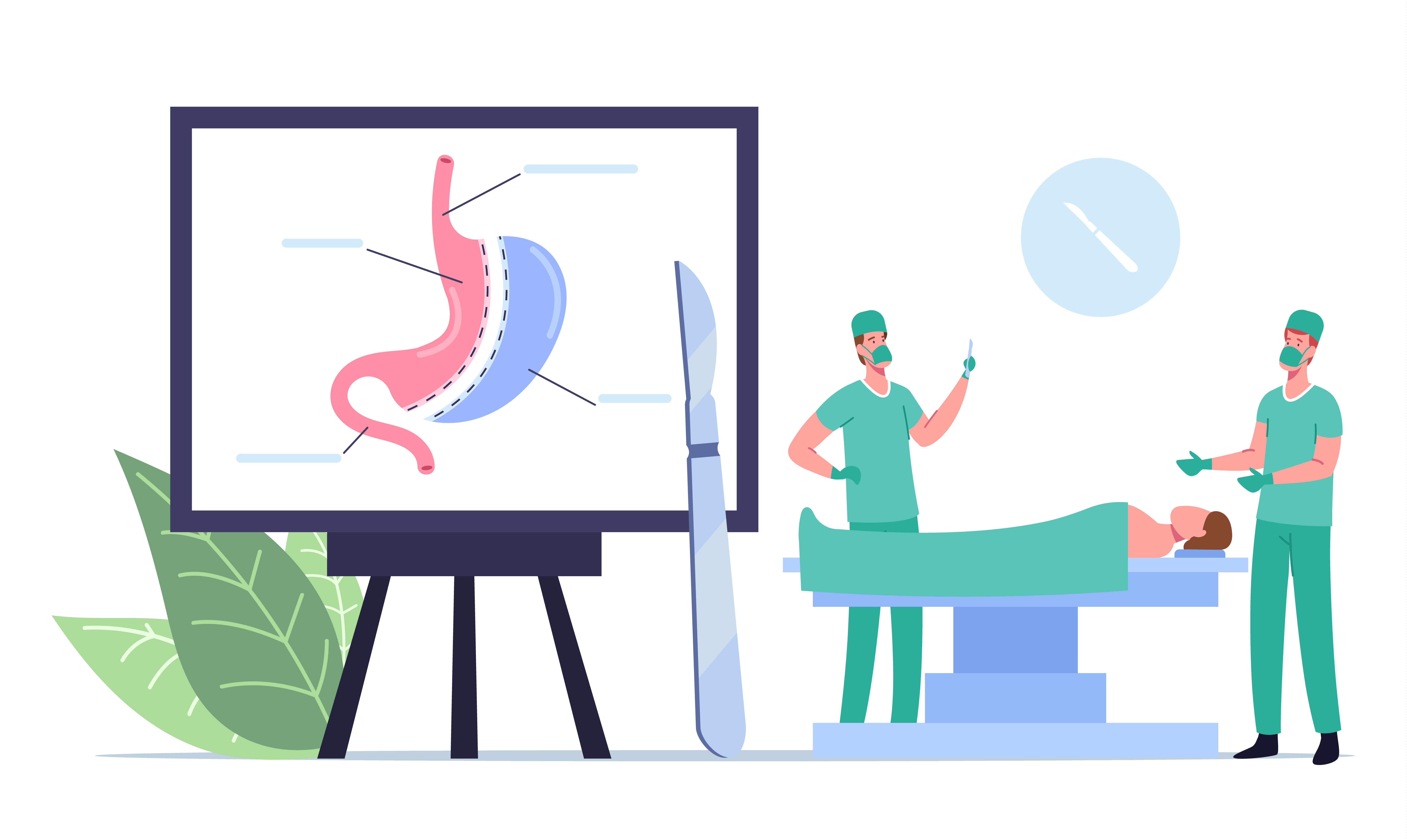Gastroesophageal Reflux
Home > GENERAL SURGERY

Gastroesophageal Reflux Disease
The escape of stomach contents into the oesophagus for various reasons is called gastroesophageal reflux. Normally, due to the valve mechanism at the junction of the oesophagus and stomach, the food, stomach acid and bile in the stomach do not escape into the oesophagus. GERD is quite common in conditions such as valve mechanism malfunction, some diseases of the oesophagus, and gastric emptying disorder.
What are the symptoms?
Burning (heartburn) that can start from the upper stomach area and spread along the midline of the rib cage
Itching that develops after meals and the stomach contents coming towards the mouth (regurgitation)
Bad breath, sore throat, difficulty in swallowing, hoarseness, belching, hiccups, tickling sensations and unexplained cough may be associated with reflux disease.
Diagnosis: Endoscopic examination is usually sufficient. However, in some reflux cases, although the patient has a complaint, the endoscopic findings may be insufficient. In such cases, the oesophagus may need to be evaluated with a catheter measuring acid (PH meter) or manometry for 24 hours.
Treatment: Reflux patients have two options, medical and surgical. In medical treatment, Proton pump inhibitors (omeprazole, lancer, process, nexium etc.) are used that reduce stomach acid levels. As the complaints of patients under drug treatment, they recur after discontinuation of the treatment.
Surgery: Today, the most commonly used permanent treatment method is laparoscopic surgery. With the surgery, patients get rid of the constant use of drugs, the patient stays in the hospital for one day after laparoscopic surgery, and there is no need for any diet or life changes. There is a success rate of over 90% in the long term after the operation.
Stretta and endoreplication: They are non-surgical treatments developed for patients who have to use drugs continuously. It is not applied to every reflux patient. Success rates are around 60%.
Copyright@2021. OP. DR. Mahmut Doğan